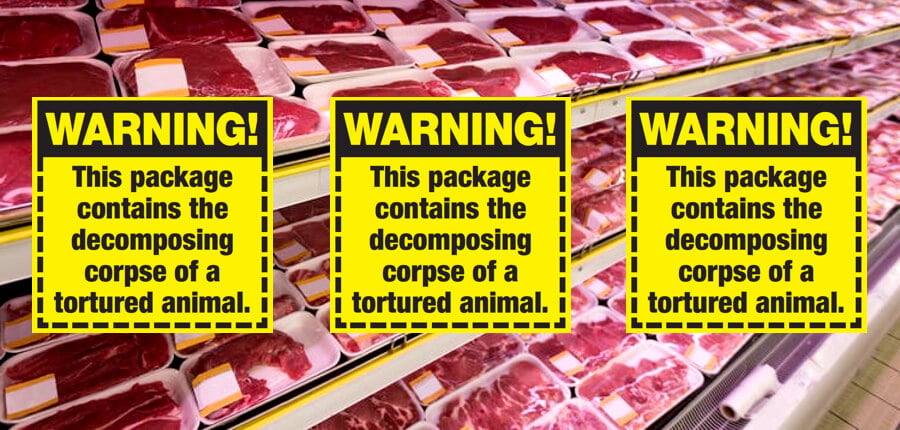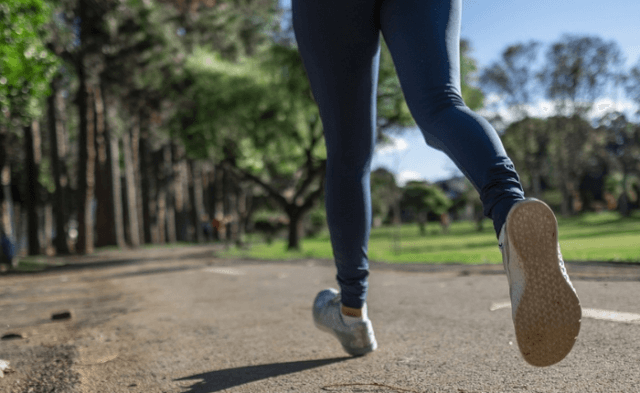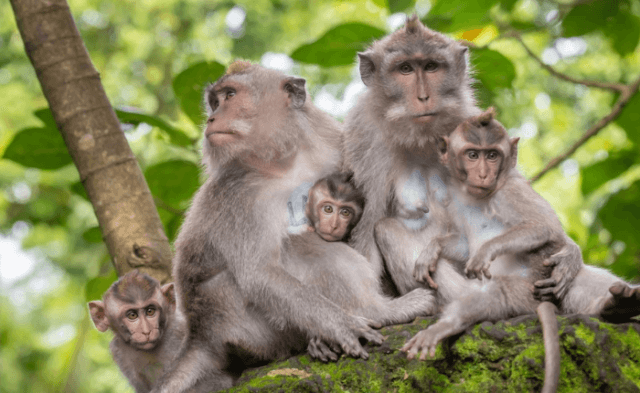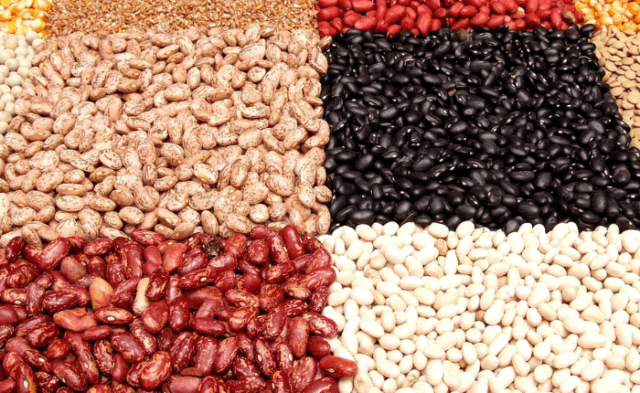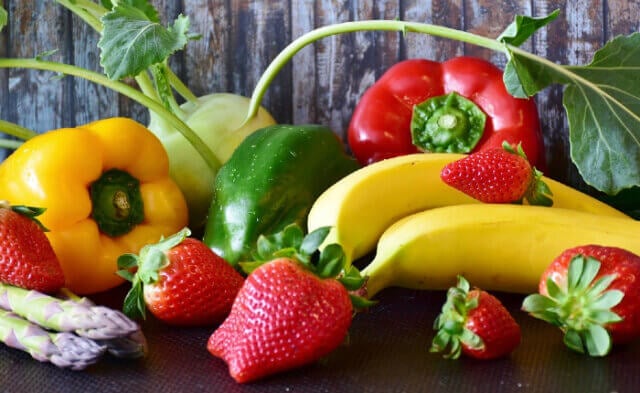Do you shout, “Cows!” when driving past a field of grazing cows? It’s hard not to smile at the sight of a grassy pasture dotted with bovines. But most of those cows don’t have joyful lives, and none of them are killed “humanely.” There have even been recorded cases of cows crying—letting out high-pitched moos and shedding tears—before slaughter.
No compassionate person wants to think of these animals being shot in the head, hung upside down and bled out just to be chopped up and eaten on a bun. But it’s important to acknowledge reality and explore our uncomfortable feelings about eating animals. Feelings are like a lighthouse in the fog: They can lead us to the solid ground of truth. So as we enter 2022, let’s look in the mirror and confront the “meat paradox.”
The meat paradox is an internal struggle: People care about animals, yet they pay the meat industry to abuse and kill them. Illustrating this disconnect, a Gallup poll found that about one in three Americans believed animals should be given the same rights as humans. But over 90% of people eat animals. And Americans, in particular, eat more meat per capita than any other country, according to the World Economic Forum.
A recent review paper published in the Social Psychological Bulletin uncovered the mental gymnastics that some meat-eaters perform in order to deal with their cognitive dissonance. The review looked at self-soothing strategies that people use to respond to triggers—things that bring to mind the contradiction of eating meat while caring about animals.
One way they dull their guilty feelings is to pretend that the animals they admire grazing in the field don’t end up on their plates. Processed meat makes it somewhat easier to keep compassion and disgust at bay. Words matter, too: Calling meat “steak” instead of “dead slab of cow” makes it easier to swallow. Someone I know posted on social media that it was hard for her to take the pig she raised from a piglet to be “processed.” She was distancing herself from the truth and shielded her heart from guilt by using the word “processed” instead of calling the procedure what it really is: slaughter.
To appease our consciences, many meat companies falsely label their products “humane.” But no matter how pleasant the packaging may appear, everything taken from animals is a result of cruel exploitation. Most animal-derived foods—including “humane” meat, eggs, milk and cheese—come from farms at which vast numbers of animals are crammed into tightly packed sheds or feedlots to maximize profit. In 2021, a PETA investigator recorded workers punching, throwing and stomping on turkeys at a so-called “humane” farm.
Another way we soothe ourselves is to deny that animals feel pain and understand what is happening to them. But animals do feel pain and are aware of what is happening to them. Pigs, for example, are brilliant, sensitive beings who want to live free from suffering. They are terrified by the sights and smells of the slaughterhouse and will scream and fight to save their own lives.
Just as mirrors shatter, the illusion can, too, at any time. It only takes a child asking, “Where do chicken nuggets come from?” to make us confront the violent origins of our food. We can learn from children’s innate empathy for animals: In a new study, 70% of children said that it wasn’t OK to eat pigs and cows.
Our “aha” moment can also come from looking into the eyes of the cats or dogs who share our hearts and homes. We know our animal companions are intelligent and have unique personalities and the desire to live. So how can we love and care for one species but kill another? How do we resolve the meat paradox? The answer is clear: Go vegan.
Not only does every vegan spare nearly 200 animals a year, ditching animal-derived “products” also helps mitigate the climate crisis and improves our health. According to the United Nations, a global shift toward vegan eating is vital to combat the worst effects of the climate crisis. And vegan foods support a healthy body and offer protection against many diseases.
As we begin this new year, let’s all lean into those gut feelings and make a change that will save animals—as well as the planet, our health and our conscience. Let’s align our hearts and minds and go vegan. Are you in?
Order Your FREE Vegan Starter Kit Today!
Rebecca Libauskas is a Staff Writer with PETA’s Written Communications Department.

